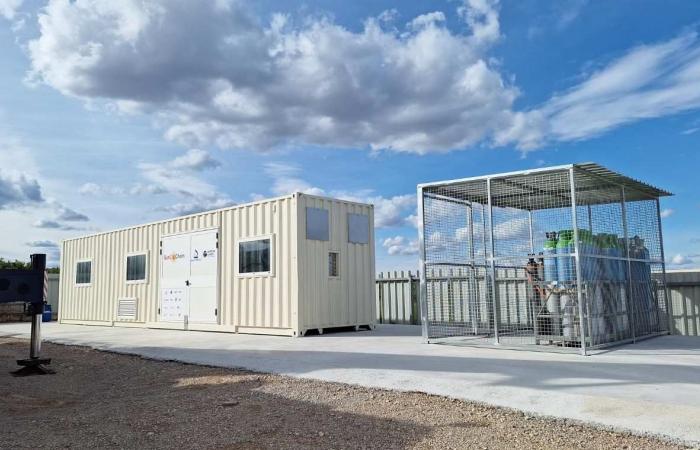
Discover how an innovative pilot plant in Spain converts CO₂ captured and green hydrogen into sustainable methanol, promoting industrial decarbonization and circular economy with toe technology.
- Development pilot plant: production of Green methanol
- Use of renewable hydrogen + Co -captured
- Technology of improved adsorption = more efficiency
- 9 kg/h of pure methanol (> 90%) Without extra purification
- Modular, scalable and replicable project
- Funded by PRTR Y Next Generation Eu
- Support the zero net industry and the circular economy
Green methanol production from renewable hydrogen and captured co₂
The Technologies Development Center of the City of Energy Foundation (Ciuden) and the EureCat Technology Center lead a pioneering project to produce high purity methanol more efficiently and sustainableusing Green hydrogen y captured carbon dioxide. This initiative transforms pollutant emissions into useful resources, aligning with the objectives of Climate neutrality marked by the European Union and the Government of Spain.
Technological innovation: beyond conventional limits
The project incorporates a new generation of reactors based on technology from Improved conversion by selective adsorption (Sorption Enhanced). This technique allows to overcome traditional thermodynamic limitations, eliminating intermediate phases of purification and improving the chemical conversion of CO₂ and hydrogen into methanol. The plant is designed for a Continuous production of 9 kg/h With a purity higher than 90%consolidating the way to the Efficient synthetic fuel synthesis (e-fuels).
Circular economy and real decarbonization
The approach is based on a model of carbon circular economywhere the CO₂ is reused instead of releasing the atmosphere. This way, Issuing industrial sectors They can transform their waste into valuable products such as methanol, which has key uses into the chemical industry and the Sustainable mobility. This direct transformation of emissions into viable energy resources is a key piece to advance in the Heavy industry decarbonization.
Two phases process: from laboratory to operational plant
The plant will be developed in two stages:
- Phase 1 (218,000 €): Research and experimental validation of New catalysts and reactors in Eurecat laboratories in Tarragona.
- Phase 2 (756,000 €): Engineering, construction and start -up of the pilot plant in Amposta, with real tests in Cubillos del Sil (León).
This structure allows to climb innovation from the laboratory to the real industrial environment, ensuring its technical and economic viability.
Association for Innovation: IMPULSE TO TECHNOLOGICAL TRANSFER
The project is part of the mechanism of Association for Innovationa tool designed for shorten the distance between science and industrypromoting concrete solutions to the challenge of climate change. This contracting modality facilitates the Effective knowledge transferallowing technological advances to have a tangible impact on the economy and sustainability.
Potential of this technology
- Reduce emissions: Co₂ becomes a useful product, avoiding its liberation to the atmosphere.
- Store renewable energy: transform green electricity into Chemical fuel stable and transportable.
- It fosters energy autonomy: Decreases imported fossil fuel dependence.
- It is modular and replicable: It can be adapted to different industries and production scales.
- Support the energy transition: Create technological bridges between renewable production and industrial use.
This pilot plant not only demonstrates the technical viability of green methanol, but also Open the door to a cleaner, circular and resilient energy modelessential to face the climatic crisis.
Via eurecat.org





